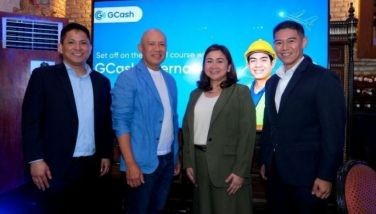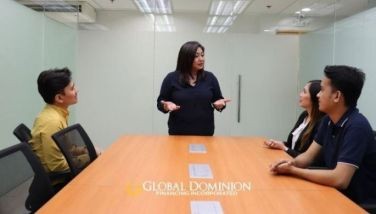High value coco
September 9, 2002 | 12:00am
Unknown to many, the cushion seats of Mercedes Benz cars are stuffed with coconut husks. The husks, which would otherwise have been thrown away or burned, are transformed into a higher-value product called coco fiber, an important raw material in the upholstery industry.
One of the big local players in coco fiber production is Laguna-based Soriano Multi-Purpose Fiber Corp., which is owned by "the father of the coconut coir industry in the Philippines," Franciso Soriano.
"When I put up the company in 1975, the coco fiber export market was dominated by India and Sri Lanka. They dictated the price of coconut fiber in the market even if their coconut industries were not as big as the Philippines," said Soriano.
In part, this could be traced to the local focus then of the Philippine coco fiber industry. Local demand from manufacturers of bed mattresses and upholstery was larger than local supply.
In a move to differentiate his company from competitors, Soriano stumbled on another use for coco husks–bed liners or ropes that could be used to round off the edges of mattresses and other furniture as well as industrial ropes and doormats.
Today, SMPFC accounts for 70% of the bed liner and mattress markets, with annual sales of P15 million. Thirty percent of its total production is exported. For example, SMPFC sells coco peat (which is used mainly for hydroponics or soil-less gardening) to Japan and Korea and coco dust to Canada. It receives annual orders for a million pieces of livers from the United States alone.
SMPFC buys the raw husk from farmers at 15 centavos per piece and needs about 50,000 pieces a daily. The husk is processed into fiber and into coco peat (which is 30% coco fiber and 20% coco dust). Dust from the peat is sold to other individuals and companies as fertilizer or soil enhancer.
Under a livelihood project of the Department of Social Welfare and Development, SMPFC provides the raw materials to make doormats. DSWD farms out the materials to the handicapped who make the doormats. DSWD also sells the doormats and shares the monthly proceeds of P500,000 to P600,000 with SMPFC.
The company also produces geo-textiles, which is made from coco husks and peat. "With geo-textiles, exports may soon account for 70% of SMPFC’s total sales, especially if a government-to-government project with China materializes," said Soriano. Under the project, Philippine geo-textile manufacturers like SMPFC will provide the ground cover for 20,000 hectares of the Chinese province of Hainan, a fertile area which is fast turning into a desert. That translates to $100 million worth of one meter by 20 meter geo-textile material.
To compete globally, local geo-textile manufacturers will have to invest in dryers and rubberizing machines. A dryer costs P6 million. Including the cost of the building to house the dryer, an estimated P8 million is needed. The cost of a rubberizing machine (plus the building to house it) is placed at about P54 million.
A dryer is needed because the 80% moisture content of coco peat must be brought down to the desired 30% moisture content. The rubberizing machine provides a smooth edging for the fiber, similar to the internal coating of the Benz’s seat upholstery and door.
"India has 100 factories that operate rubberizing machines," said Soriano. "If the Philippines invests in rubberizing machines, it will revolutionize the local mattress and will easily generate an additional 1,000 jobs." – RGdelaCruz
One of the big local players in coco fiber production is Laguna-based Soriano Multi-Purpose Fiber Corp., which is owned by "the father of the coconut coir industry in the Philippines," Franciso Soriano.
"When I put up the company in 1975, the coco fiber export market was dominated by India and Sri Lanka. They dictated the price of coconut fiber in the market even if their coconut industries were not as big as the Philippines," said Soriano.
In part, this could be traced to the local focus then of the Philippine coco fiber industry. Local demand from manufacturers of bed mattresses and upholstery was larger than local supply.
In a move to differentiate his company from competitors, Soriano stumbled on another use for coco husks–bed liners or ropes that could be used to round off the edges of mattresses and other furniture as well as industrial ropes and doormats.
Today, SMPFC accounts for 70% of the bed liner and mattress markets, with annual sales of P15 million. Thirty percent of its total production is exported. For example, SMPFC sells coco peat (which is used mainly for hydroponics or soil-less gardening) to Japan and Korea and coco dust to Canada. It receives annual orders for a million pieces of livers from the United States alone.
Under a livelihood project of the Department of Social Welfare and Development, SMPFC provides the raw materials to make doormats. DSWD farms out the materials to the handicapped who make the doormats. DSWD also sells the doormats and shares the monthly proceeds of P500,000 to P600,000 with SMPFC.
The company also produces geo-textiles, which is made from coco husks and peat. "With geo-textiles, exports may soon account for 70% of SMPFC’s total sales, especially if a government-to-government project with China materializes," said Soriano. Under the project, Philippine geo-textile manufacturers like SMPFC will provide the ground cover for 20,000 hectares of the Chinese province of Hainan, a fertile area which is fast turning into a desert. That translates to $100 million worth of one meter by 20 meter geo-textile material.
A dryer is needed because the 80% moisture content of coco peat must be brought down to the desired 30% moisture content. The rubberizing machine provides a smooth edging for the fiber, similar to the internal coating of the Benz’s seat upholstery and door.
"India has 100 factories that operate rubberizing machines," said Soriano. "If the Philippines invests in rubberizing machines, it will revolutionize the local mattress and will easily generate an additional 1,000 jobs." – RGdelaCruz
BrandSpace Articles
<
>
- Latest
Latest
Latest
March 22, 2024 - 5:22pm
March 22, 2024 - 5:22pm
March 13, 2024 - 2:45pm
March 13, 2024 - 2:45pm
January 18, 2024 - 6:20pm
January 18, 2024 - 6:20pm
January 17, 2024 - 12:00am
January 17, 2024 - 12:00am
Recommended

























